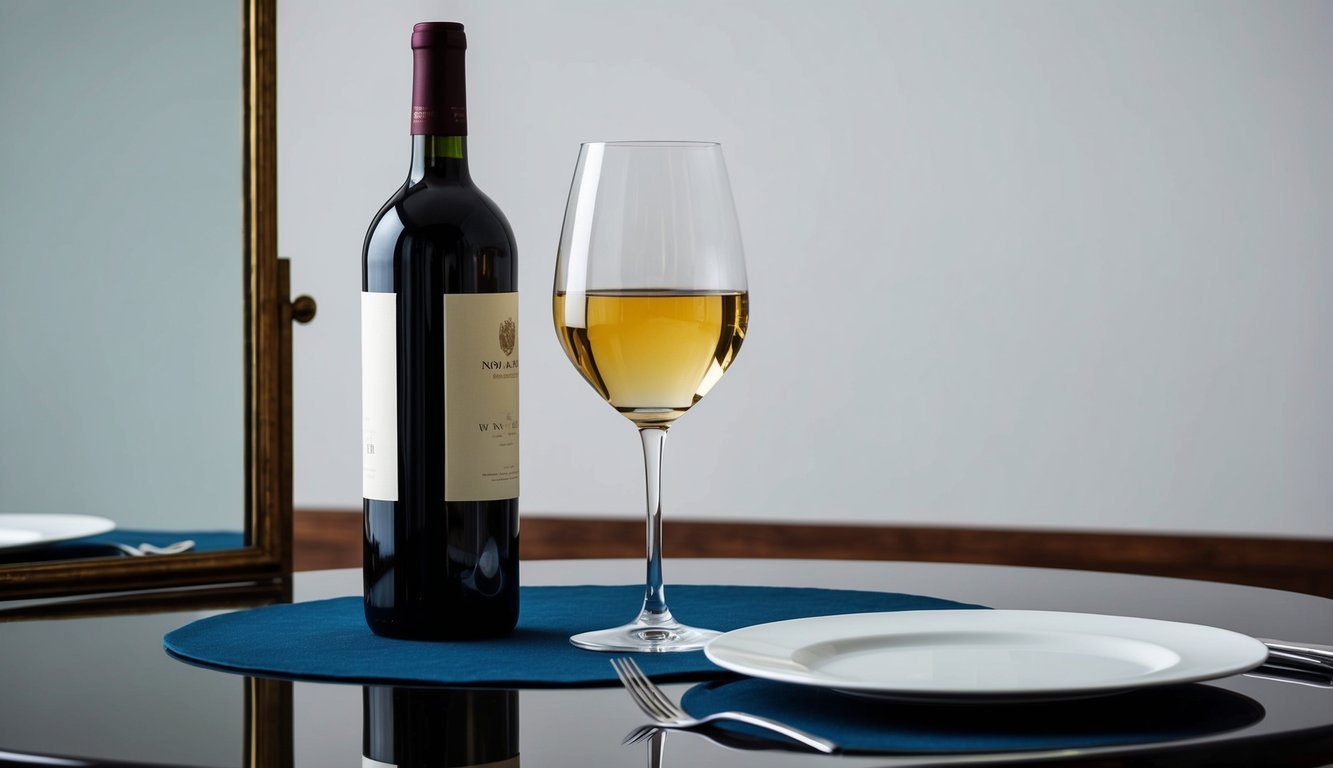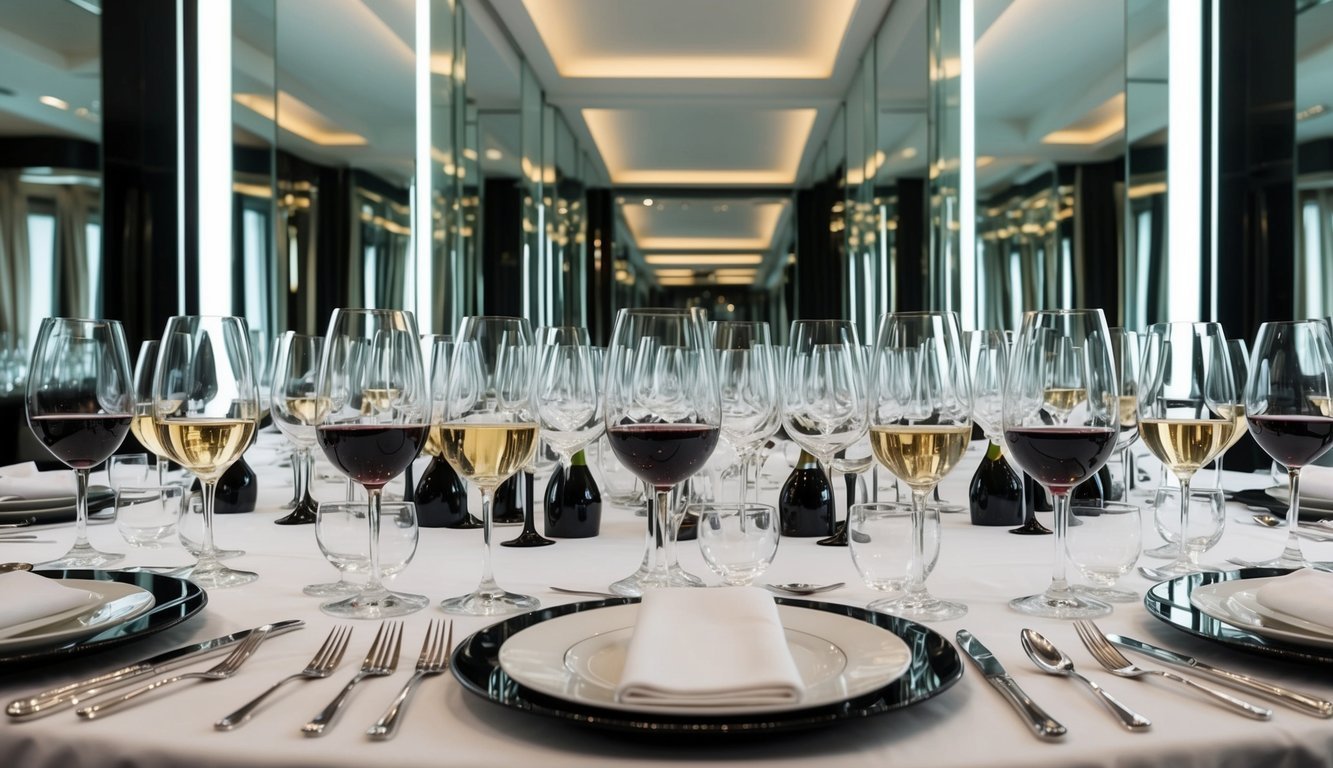PsychNewsDaily Publishers
100 Summit Drive
Burlington, MA, 01803
Telephone: (320) 349-2484
PsychNewsDaily Publishers
100 Summit Drive
Burlington, MA, 01803
Telephone: (320) 349-2484
Narcissism influences self-perception and social interactions, leading individuals to use wine as a tool for enhancing their image and perceived social status.

Narcissism often shapes how individuals view themselves and their social interactions. People with narcissistic traits believe that drinking wine can enhance their image and make them more attractive to others. Research shows that narcissists tend to drink more wine than the average person, not just for enjoyment, but to boost their perceived social status.

In many social settings, wine is associated with elegance and sophistication, which appeals to those wanting to enhance their attractiveness. This behavior can impact their relationships, as their focus on image might overshadow deeper connections.
Drinking wine in moderation could foster a more balanced perspective, but for narcissists, the allure of status often leads to excessive consumption.
Exploring this connection between narcissism and wine can uncover insights about social behavior and relationships. Understanding these dynamics can help individuals recognize how perceptions influence choices and interactions.

Narcissism is a complex personality trait that affects how individuals view themselves and interact with others. It can show up in both healthy and harmful ways. This section will explore the core aspects of narcissism, including its psychological traits and how it relates to narcissistic personality disorder.
Narcissists have a unique psychological profile. They often exhibit inflated self-esteem and a strong belief in their importance. This self-image can lead to an overemphasis on their needs and desires while downplaying others’ feelings.
Freud introduced concepts like the id, ego, and superego, which help explain their behavior. Narcissists frequently act based on the pleasure principle, seeking immediate gratification. This can clash with the reality principle, which recognizes social norms and feelings of others. Consequently, narcissists can appear self-centered and sometimes unaware of the impact of their actions.
Narcissistic Personality Disorder (NPD) is a more severe form of narcissism. Individuals with NPD might display traits such as a lack of empathy, self-absorption, and an extreme need for admiration. They often have difficulty maintaining healthy relationships due to their focus on themselves.
Common signs of NPD include:
In therapy, addressing these traits can take time. Mental health professionals often focus on building awareness and encouraging healthier interactions.
Not all narcissism is bad. Many people exhibit healthy traits like self-confidence and ambition. Healthy narcissism can drive individuals to pursue goals while respecting others.
In contrast, harmful narcissism involves manipulation and narcissistic abuse. People with this mindset may exploit others emotionally or socially. They are often unable to take responsibility for their actions and can be defensive or aggressive when challenged.
It is essential to recognize the difference between these forms of narcissism. Seeking therapy can greatly benefit those struggling with the harmful aspects, offering tools to foster healthier relationships and self-views.

Narcissists often view wine as more than just a drink; they see it as a tool for social enhancement. This attitude influences both their drinking habits and their interactions with others. Understanding how this plays out can shed light on their social dynamics and relationships.
Wine is commonly associated with social gatherings and celebrations. For many narcissists, consuming wine can elevate their perceived social status. They believe that enjoying fine wine portrays sophistication and attractiveness.
This belief leads them to drink wine even when they may not enjoy it fully. Attending parties or social events, their wine consumption becomes a way to signal their place within a social hierarchy. It’s essential to note that moderation can be key.
Excessive drinking may lead to negative consequences, including substance abuse. This can harm their relationships with friends and family, especially if the narcissist struggles with narcissistic rage.
Narcissists often think of alcohol as a social lubricant. They believe it helps them appear more charming and engaging in conversations. This view can encourage overconsumption in social settings, as they aim to project confidence and allure.
However, their reliance on wine can create a facade. While it allows them to engage in social settings, it can mask underlying issues related to self-esteem. Failing to drink in moderation can lead to dangerous situations.
When they face rejection or criticism, their response may be extreme, often displaying narcissistic rage. This sometimes alienates friends or partners, creating further issues in their personal lives.
Alcohol consumption can complicate the interpersonal relationships of narcissists. While they may initially connect with others through shared wine experiences, the effects of alcohol can quickly shift dynamics.
As their inhibitions lower, some narcissists may reveal sides of themselves that are off-putting, like entitlement or arrogance. Friends and family might feel the strain when they do not meet the narcissist’s inflated expectations.
Relationships with narcissistic parents can also be affected. If they use wine in parenting scenarios, it can introduce instability. This may reinforce unhealthy patterns that affect the child’s perception of relationships and moderation.

The influence of narcissism on wine consumption can greatly affect both personal and professional lives. The need for social status may lead to various direct and indirect consequences for narcissists and those around them. This section explores these effects in detail.
Narcissists often believe that drinking wine enhances their social attractiveness. This belief can lead to overindulgence, affecting relationships with friends and colleagues. Their focus on self-image may result in manipulation of those around them.
In personal relationships, they may engage in gossip or use projection to deflect blame. This can create tension and distrust among loved ones. In the workplace, narcissists might take credit for others’ ideas, leading to a negative atmosphere. Their behavior may even contribute to a financial crisis for teams relying on collaboration.
The link between narcissism and alcohol can lead to several health issues. Higher wine consumption may result in mood swings, anxiety, and depression. As narcissists tend to cope poorly with stress, they may turn to alcohol more frequently to manage emotions.
This can spiral into malignant behaviors, including cheating or inflicting emotional abuse on partners. Additionally, their reliance on wine may lead to dangerous habits that pose health risks. Such behaviors can damage reputations, trashing good names in social circles. Support groups become vital for those who struggle with both narcissism and addiction.
Interacting with narcissists can be challenging. It’s essential to recognize their tendencies to manipulate feelings and engage in pathological envy. Narcissists often project their insecurities onto others, making relationships tumultuous.
Setting firm boundaries is crucial to protect one’s emotional well-being. Being aware of how they might induce stress through gossip or emotional abuse can help. For those involved with narcissists, forming a support group is beneficial. This allows individuals to share experiences and strategies for managing their relationships with narcissists effectively.

Many people wonder how narcissism affects eating and drinking behaviors. It’s interesting to see how narcissists view their habits and the role these behaviors play in their social lives.
Narcissists often focus on how their food choices make them look to others. They may choose trendy or expensive foods to boost their image. This can lead them to prioritize appearance over enjoyment.
Yes, some narcissists may refuse to eat in social situations to draw attention to themselves. This behavior can create a sense of control and make others focus on them. It can also signal that they see themselves as above others.
Narcissistic parents may use food as a way to control or influence their children. They might condition their love and attention on the child’s eating habits. This can lead to unhealthy relationships with food in their kids.
Narcissists often use food to manipulate partners. They might choose what their partner eats or make them feel guilty about their food choices. This can create a power imbalance in the relationship.
Narcissists may enjoy cooking but often do it for attention. If they cook, they may aim to impress others rather than genuinely enjoy the process. This can lead to their cooking being more about showing off than sharing.
Yes, those with narcissistic traits often drink alcohol to enhance their social image. They may believe that alcohol helps them appear more attractive or interesting.
This belief can lead to increased wine consumption in social settings.